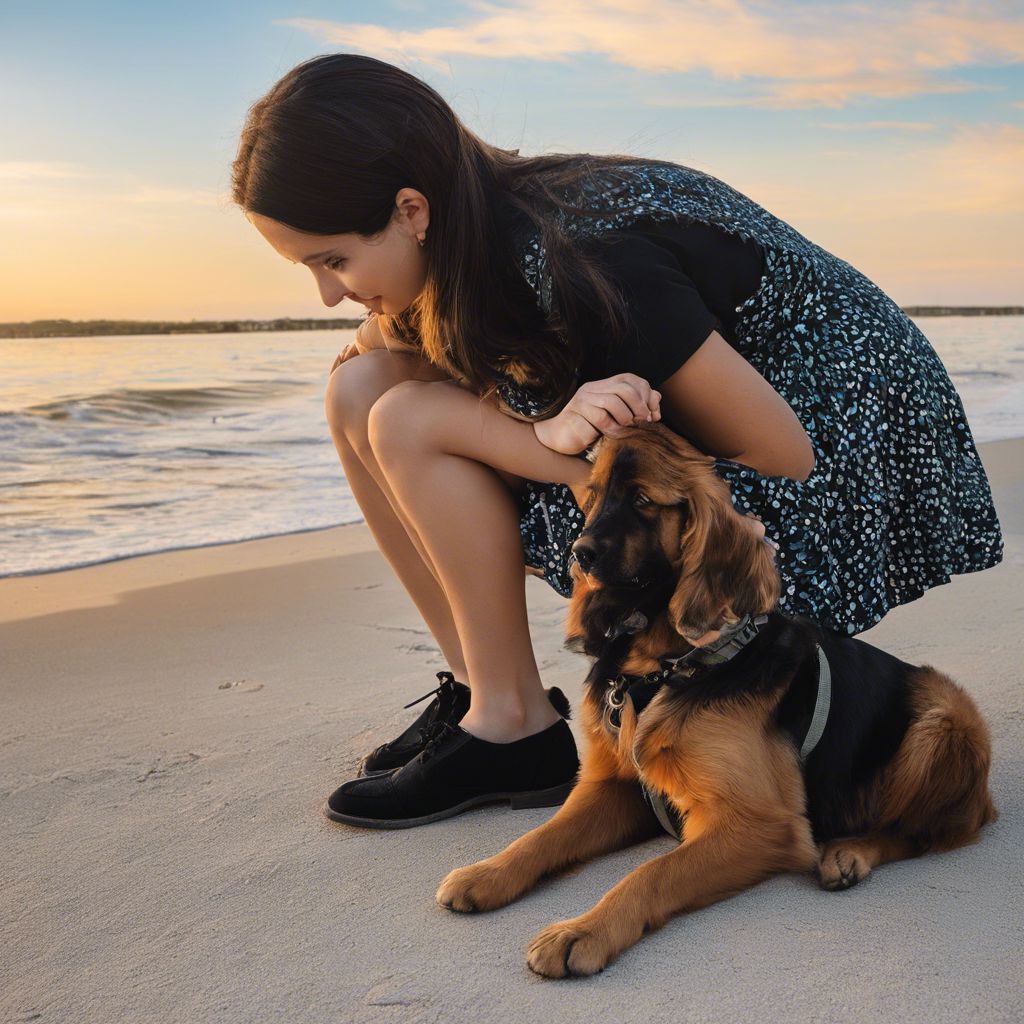Exploring the powerful bond between pets and individuals with PTSD, offering support, companionship, and emotional healing.
The presence of a pet can significantly impact the lives of individuals dealing with Post-Traumatic Stress Disorder (PTSD), offering a unique form of support and companionship that is hard to replicate through other means. PTSD is a mental health condition that can develop after exposure to a traumatic event, often affecting military veterans, first responders, and survivors of violence or abuse. The symptoms can include flashbacks, nightmares, severe anxiety, and uncontrollable thoughts about the event.
In recent years, the role of pets in assisting with the management of PTSD has gained attention, with various organizations and studies exploring the positive impact of animal-assisted therapy. Let’s delve into how pets are becoming invaluable companions in the healing journey of those affected by PTSD.
The Healing Power of Pets
Emotional Support and Companionship
Pets, especially dogs and cats, have an innate ability to provide unconditional love and emotional support to their owners. The simple act of petting an animal can release oxytocin, a hormone that promotes feelings of calmness and well-being. This can significantly reduce the symptoms of PTSD, such as anxiety and depression.
Building a Sense of Routine
Caring for a pet provides a structured routine, which is essential for individuals struggling with PTSD. The daily tasks of feeding, walking, and grooming a pet offer a sense of purpose and normalcy, helping to anchor the individual to the present moment and reduce the impact of traumatic memories.
Reducing Anxiety and Stress
The presence of a pet can significantly lower stress and anxiety levels. Research has shown that interacting with animals can decrease cortisol, the primary stress hormone, and provide a distraction from intrusive thoughts and memories. Organizations like Paws for Veterans[^1^] have recognized this and are working to provide service dogs to veterans with PTSD, helping them to manage their symptoms and improve their overall quality of life.
The Science Behind Animal-Assisted Therapy
Proven Benefits for PTSD
Several studies have demonstrated the effectiveness of animal-assisted therapy in managing PTSD. For example, a study published in the Journal of Consulting and Clinical Psychology[^2^] found that veterans with PTSD who underwent animal-assisted therapy experienced reduced symptoms and improved overall mental health compared to those who received standard therapy alone.
Mechanisms of Action
The benefits of animal-assisted therapy for PTSD are thought to stem from various factors. Animals can provide a sense of social support, encouraging individuals to build relationships and trust. This can be particularly beneficial for those with PTSD, who often struggle with social isolation and challenges in forming bonds with others.
Service Dogs in Action
Service dogs, in particular, are trained to perform specific tasks to assist individuals with PTSD. They can recognize and respond to signs of distress, interrupt panic attacks or flashbacks, and provide sensory support by nudging or applying pressure when their handler feels overwhelmed. These tasks not only help manage symptoms but also empower individuals to regain control over their daily lives.
Frequently Asked Questions
Are all pets suitable for individuals with PTSD?
While all pets can offer companionship, certain breeds and types of animals may be better suited for individuals with PTSD. Dogs and cats are often recommended due to their ability to form strong bonds and provide sensory support. However, the choice of pet should ultimately be based on the individual’s preferences and lifestyle.
How can I access animal-assisted therapy for PTSD?
Animal-assisted therapy can be accessed through various means. Mental health professionals, such as psychologists or psychiatrists, may offer this as part of their treatment plan. Alternatively, organizations like Paws for Veterans and others provide service animals specifically trained to assist individuals with PTSD. It is essential to consult with a healthcare professional to determine the best course of action.
What are the long-term benefits of having a pet for individuals with PTSD?
The long-term benefits of having a pet for individuals with PTSD can be profound. Pets provide a constant source of emotional support, helping to reduce symptoms and improve overall well-being. They can also contribute to increased social interaction and a sense of purpose, ultimately leading to a higher quality of life.
Conclusion
Pets play a vital role in supporting individuals with PTSD, offering a unique and powerful form of therapy. Through their companionship, love, and specialized training, pets help manage symptoms, provide a sense of routine, and contribute to overall well-being. As more research emerges, the importance of the human-animal bond in mental health treatment becomes increasingly evident. The integration of animal-assisted therapy in PTSD treatment offers hope and healing to those affected by this challenging condition.
[^1^]: [Paws for Veterans](https://www.pawsforveterans.org/)
[^2^]: [Journal of Consulting and Clinical Psychology](https://www.apa.org/pubs/journals/ccp)
**Recommended external links:**
1. [The Power of Animal-Assisted Therapy for PTSD](https://www.psychologytoday.com/us/blog/the-power-of-service-dogs/201807/the-power-animal-assisted-therapy-ptsd)
2. [Dogs and PTSD: How Canines Help Heal the Scars of War](https://www.usnews.com/news/articles/2013/06/11/dogs-and-ptsd-how-canines-help-heal-the-scars-of-war)
3. [Animal-Assisted Therapy: Benefits for Veterans with PTSD](https://www.ptsd.va.gov/understand_tx/treatments/animal_assisted_therapy.asp)
